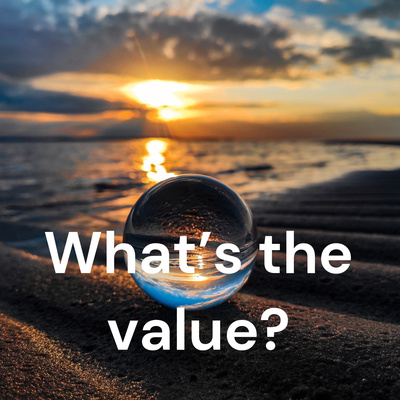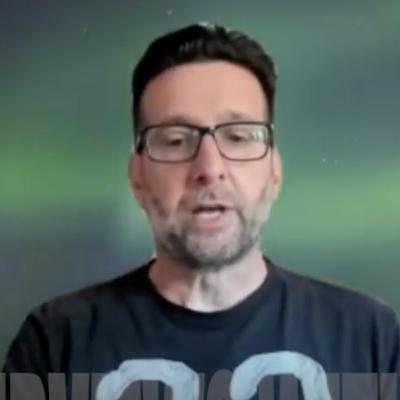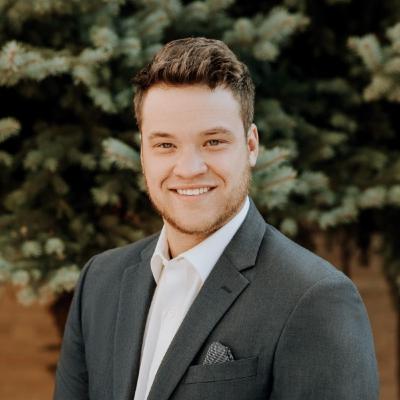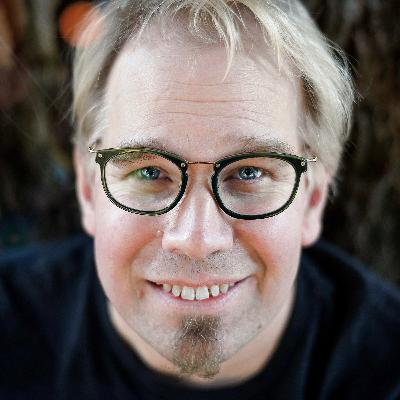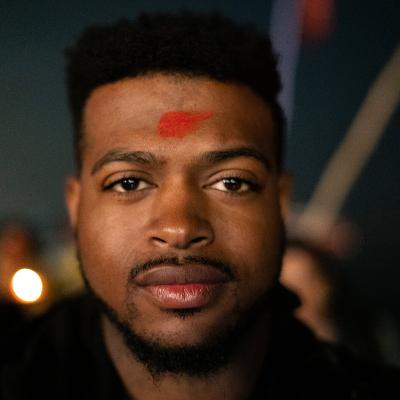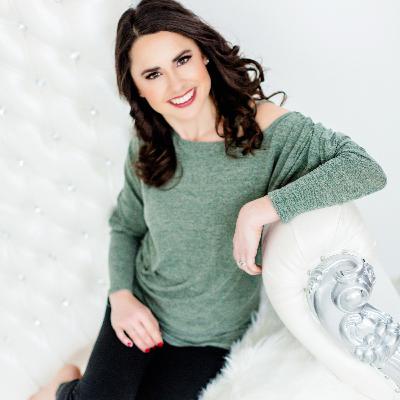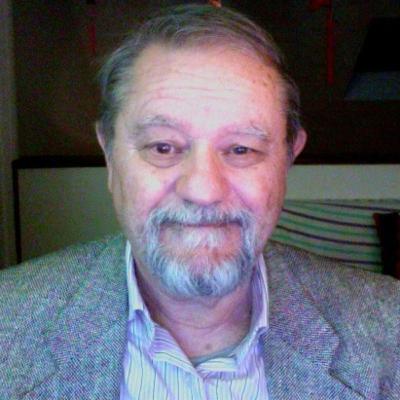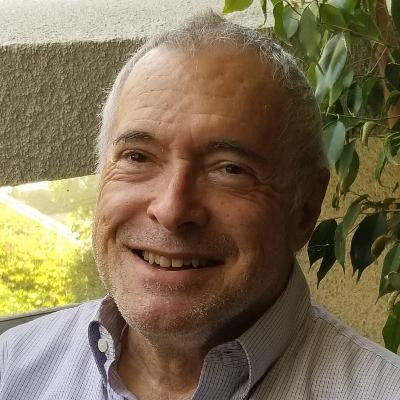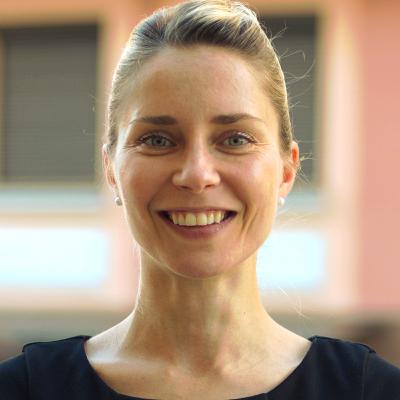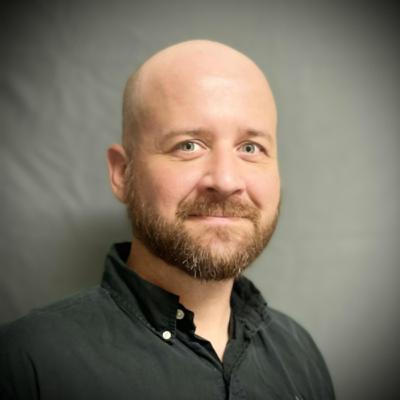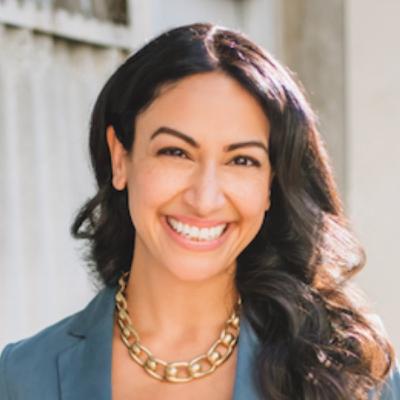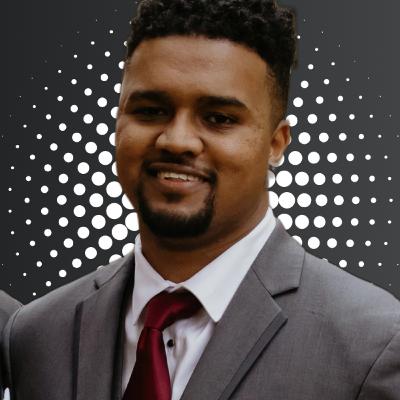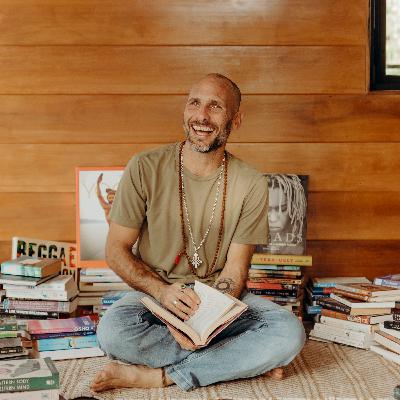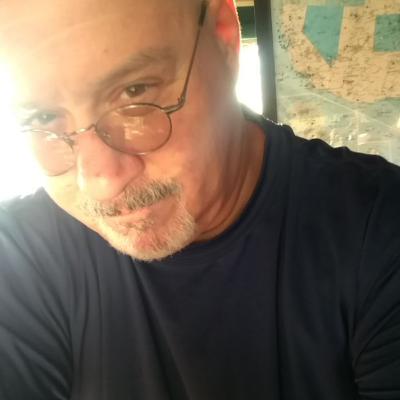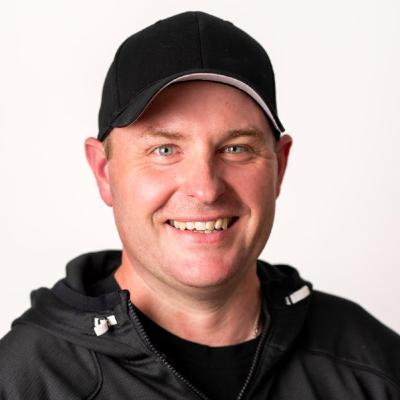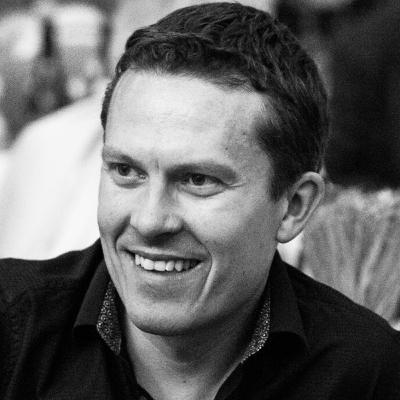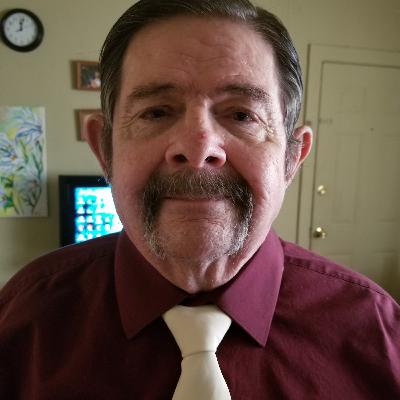Discover What's the value?
What's the value?

What's the value?
Author: Terry McMullen
Subscribed: 3Played: 127Subscribe
Share
© Terry McMullen
Description
I ask guests about the value of a strongly held belief, vision, or objective they have. This can be a business idea, a personal/spiritual belief, a political/social agenda, or a focus of their career. I want to have conversations with people who are really passionate about their belief and work through how much they've questioned and challenged it. No intent of changing their minds, but just exploring and being curious. My hope is that it will help listeners better understand the guest's perspective, while also helping the guest to better understand themselves and their belief.
240 Episodes
Reverse
This is a solo session, where I talk about some relevant current events through the "what's the value" lens. In today's episode one of the bigger stories is that Congresswoman Marjorie Taylor Greene was banned from Twitter for controversial comments (most notably about COVID). I think and talk through this, asking (rhetorical) questions of both sides trying to understand why they are taking the course of action they are taking. I get a little fired up, because when Logic tells us something and people seem to act against it, I have a tough time understanding that. As always, I could be wrong or missing something, but I think these questions are important to ask of all sides. Thanks for listening.
These conversations are hard. I've listened back to this one a number of times and the only thing I can keep thinking is "nuance."
These discussions are nuanced, these topics are nuanced, life is nuanced.
On the one hand I feel like this is all we can do, have an open conversation with someone, hear their thoughts, ask questions, and try to understand different perspectives better.
On the other hand I feel like I should have pushed back much harder. Some of the words used weren't OK and I should have addressed that more, not to be combative but to try to get to a better place.
You guys will be the judge on this one. I do thank Tony for being on, sharing his thoughts, and being open to discussing and challenging them.
A more complete bio from Tony is below:
I am like all broken people who come from broken families. I am everyone who longs for family that never was given the chance to be. I am the example of why healthy families are the key to most problems, and the guide to bring young people back to the family. I am the harbinger for those who are actively trying to destroy the family, and the light for those trying to find their way to fight for what is normal. I'm just a regular guy, who see what's wrong, and wrote it down. Link to book is here
"Philosophy is actually the end of abstractions."
Wow, what a statement to think about. How different our approach to life might become if we embrace that thought. How much more reflective and humble we might become.
This conversation with Nikos was full of interesting and insightful thoughts. We talked philosophy, biology, evolution, psychology, and spirituality-- all with the same goal of trying to better understand what the hell we are doing here.
Not because it is interesting to think about, but because it is the realest, most practical question we can ask.
A more complete bio for Nikos below:
Following in the footsteps of Epicurus, Nikos Patedakis works with individuals, groups, and organizations, bringing to bear the most powerful and holistic teachings of the wisdom traditions in relation to our most daunting personal and global challenges.
His training includes earning two master’s degrees and a PhD, as well as a graduating from a 3-year, full-time certification course in specialized educational theory and practice—along with countless hours of spiritual practice and years spent teaching inside and outside of the university system, as well as years spent working as a consulting philosopher and corporate trainer for Fortune 500 companies.
Chad is a successful business person who now works to help coach others on how to be successful. What's super interesting about Chad is that:
1. He has some spiritual and religious values that underpin a lot of his thinking and his goals in life.
2. On the surface, he can seem like a bit of a "finance bro" who overemphasizes his masculinity and his drive to win at life.
As we do on this show, we spent the discussion trying to reconcile that, understand who Chad really is, and why he approaches life the way he does.
We didn't shy away from the controversial areas or the potential contradictions, we leaned into them. The result was a really honest and authentic conversation, where I got to truly understand another person's perspective.
Big thanks to Chad for being game for the discussion and having an honest conversation.
A more complete bio from Chad is below:
Chad Wittfeldt started his entrepreneurial journey at a young age by starting a landscaping company and electronic arbitrage business in his teenage years. He quickly focused on investing in the equities & currency markets. Chad later became a full-time investor and real estate entrepreneur in his twenties. Today, he's partnered on over $30,000,000 in real estate syndications.
Cory is an author and a pastor, who has a deep faith in God. He believes that it is only through God that we can fulfill our inherent cravings and live a happy, peaceful, meaningful life. He has written a book, The Magnetic Heart of God - Understanding the Five Cravings of Your Soul.
We spent this conversation exploring Cory's understanding of those 5 cravings, why he is confident they are spiritual and non-biological, and what it actually means to embrace God to fulfill them.
I always love the chance to talk to someone with deep spiritual beliefs, especially someone as open as Cory to examining and questioning them. It leads to such a rich, productive, and insightful discussion.
A more complete bio from Cory is below:
As an author, pastor, communicator, and a tenacious pursuer of truth, Cory Rosenke is both the concept pioneer and the foremost authority on the cravings of the soul. Through session, song, workshop and manuscript, he is dedicated to the pivotal work of connecting hungry souls to the joy
of their Maker.
In a world where truth and reality have become shrouded in deceptive ambiguity, Cory Rosenke specializes in reasserting the clarity of divine definition and design.
Kamal is a photographer who wanted to capture the essence of what really was happening in America in 2020. He wanted to use photography to let all of the division, hate, fear, anger, sorrow, love, compassion, and humanity show its true self--the true story of what was underneath it all.
As you'll hear, he is also just a really authentic, thoughtful, self-aware person. It was fascinating to hear his stories, how he became so passionate about photography, and what he learned about humanity as he created his book, Black Astronaut.
I love talking to photographers because most of them are natural observers. They feel compelled to look at the world around them and see what is going on. Those are the types of people I want to hear from because very likely they've seen things I haven't, and I can learn from them.
A more complete bio from Kamal is below:
I am Kamal X, a professional photographer that has been documenting my travels throughout the world since 2015. Photography found me at a time in my life where I felt confused and voiceless. I wasn’t sure of where I was internally and what direction I wanted my life to go. I welcomed my challenges and I found myself drawn to creating images that evoke emotions rooted in the many universal elements of the human experience. My goal is to tell stories from all walks of life and give a raw voice to the world we live in, through compassion and honesty.
Dana has experienced a lot of trauma and abuse in her life by narcissists. From a young age she dealt with it from her mother and step father and even later in life at the hands of her ex-husband. She spent so much time struggling with this form of physical, verbal, and psychological abuse that it made her question the reality she was living in.
As she explains in her work, narcissistic abusers create so much confusion and conflict in the mind of the abused. She's struggled with this for much of her life and that is why her value of finding the truth is so important to her.
Dana was super open to share her experiences and really examine them in an earnest way. We spent time trying to make sense of what leads someone to abuse someone in this way, how she grappled with her own self doubt, and even if she could/should have empathy for her abusers. Some of these questions are really hard to ask and even harder to answer. But if we want to understand the ugliness in our world, we need to examine it.
I can't thank her enough for engaging in this type of discussion so that others can better understand their own situation.
A more complete bio from Dana is below:
Dana S. Diaz is a wife, mother, and author of the best-selling book GASPING FOR AIR: THE STRANGLEHOLD OF NARCISSISTIC ABUSE. Dana has had life-long experience with narcissistic abuse, beginning in childhood. Her education in journalism and psychology at DePaul University in Chicago gave her the ability to accurately verbalize and express how narcissistic abuse creates confusion and conflict within victims, so that she can help other victims know they are not alone and better understand their own circumstances.
Today, Dana is a proud voice for fellow victims who are unable, afraid, or ashamed to share their experiences. She strives to create awareness
and understanding to ensure victims are given the support they need to first understand their situation and then begin the healing process. Her
first book, chronicling her own abusive marriage that lasted nearly three decades, started as a journal that she hid under the couch cushion in the
basement.
Gerald is a psychoanalyst, who has studied human behavior for a long time. He has used that expertise to formulate hypotheses about social issues, like feminism, civil rights, and most recently mass shootings in America.
Some of his views have been called insensitive or offensive. For example, in trying to explore how to stop mass shootings, one of his ideas is to regulate who is allowed to parent a child. The thought being that ineffective child rearing (among other social/cultural issues) is leading to a number of mass shootings.
That type of idea is the exact one I want to explore on the show. I want us to swim in the nuance, sensitivity, and uncomfortableness. Not for the shock factor, but because genuinely exploring these types of ideas allows us to learn.
If it is a horrible idea, then let us rip it apart and examine it to see. I fully understand that words can do damage and these topics can be difficult to discuss. But my hope is that this show is able to walk the line of being open minded/exploring, while at the same time holding people accountable and calling out things that seem harmful.
A more complete bio from Gerald is below:
Gerald Schoenewolf, Ph.D. is a licensed psychoanalyst who has been practicing in New York for over 45 years. During that time he has offered numerous presentations at conferences and published 30 books and numerous papers in professional journals, including "The Myth of Sexual Abuse." Other papers offer original theories on the death trauma, gender narcissism and autism. InThe Mass Killer: Six Case Histories That Tell Us Why, he directs his psychoanalytic knowledge and research to an examination of the how and why of mass killings, exploring the psychology and social psychology of six notorious cases.
Dr. Schoenewolf is a noted psychoanalyst, listed on Wikipedia, with a world-wide reputation. In addition to his writings on psychology, he has also published nine novels, translated two books of philosophy, written, directed and produced two feature films. and wrote and illustrated a book of poetry and a DVD of video poems. He currently lives in Bethlehem, PA with his wife, Julia, his parrot, Lucky, and his cats, Minnie and Max.
My guest, Kent, believes humanity is in a crisis but he is very optimistic that we have the tools and knowledge to overcome that crisis. Much of the problem is rooted in our attachments (or lack thereof) during childhood. We are all damaged children who grow up to become damaged adults and the work Kent is doing is to help us figure out how to heal that damage and be better going forward.
If you've listened to the show before, you know I tend to take a much more cynical view of humanity. I look around and see all the damage Kent speaks of, but I don't see any reason to believe that we, at scale, can figure it out and heal ourselves. Life is too complex and our minds are too incapable of handling it.
So Kent and I spent some time discussing his work, why he does it, and why he thinks it will actually help humanity.
A more complete bio from Kent below-
Kent Weishaus’ new book, “Stop Breaking Down: The Secret to Avoiding Overwhelm and Crack-Up,” shows us how to step back, take the high ground, observing our biological and mental processes within the context of the overwhelming demands of our 21st century world.
Kent is a licensed clinical social worker in private practice in California. He has worked in mental hospitals, community clinics, schools, and served as an adjunct professor at Cal State Los Angeles, teaching social work theory and practice classes to master degree students.
Olga has a belief that free will doesn't exist. This belief isn't rooted in spirituality or intuition, it is deeply rooted in science and reason. Olga believes if people understood that free doesn't exist, it would actually inspire us to be more humble, more caring, and increase our overall quality of life.
These conversations are so rich with good discussion because there is so much to get into. Does free will really not exist, how would we know? What are the implications of free will not existing, how do we know it would make people better off knowing that? If free will doesn't exist does that mean our individual lives are meaningless? How can any decision I make actually matter if I didn't have the free will to decide anyway?
As a scientist and a philosopher, Olga was a great person to kick around these questions with. She's thought through so much of it in her work but also in a novella she just released exploring these exact topics.
A more complete bio from Olga below-
I am an Associate Professor in the Department of Radiology and Biomedical Imaging at the University of California in San Francisco (UCSF). I hold my degrees in Physics (PhD), Electrical Engineering (MSc and BSc), and Psychology (BSc). Professionally I focus on studying adolescent brain development and mental health. My other goals in life include sharing my passion for science and critical thinking, and helping people have more joy in their lives. The award-winning novella Just City is my first fiction book, which reflects my passion for science and critical thinking.
Chris has a bold belief that he understands the issues with our current economic systems, the ways they are hurting society and the earth, and what needs to be done to fix them.
His work, with his non-profit (The Foundation of New World), is meant to build awareness and drive people to implement these fixes. At the root of the problem, Chris believes we are focusing on the wrong metrics (GDP, currency values, inflation, etc.) which are leading us to overproduce, overwork our employees, and destroy value.
Although many people would agree that our current systems have issues, it is a massive claim to suggest that there is a cure-all to fix them. So Chris and I spent a good bit of time trying to understand his solution and how realistic it was. We also spent time trying to better understand Chris, where this mission came from, and why he has dedicated so much of his life to it.
A more complete bio from Chris-
Christopher Ellingsworth is the Founder and CEO of a non-profit, (https://thefoundationofanewworld.com/), and a veteran. He would like to not only raise awareness about the non-profit and its goals, but also to raise awareness and teach people about a core problem of our society that is overlooked, not understood, and thought to be unsolvable. This core problem is our financial system and its designs that push our society to produce products designed to fail so they can be built again, simultaneously causing us to destroy our own environment reproducing what is planned to be garbage as soon as possible and pushing the majority of humankind into something close to if not, a form of indentured servitude.
Hajar cares deeply about humanity. She believes in humanity and that we can figure out ways to stop finding reasons to divide ourselves, causing suffering, and hating one another. She is also knowledgable enough to know that it won't be easy. That's why she's dedicated her life as a professor and author to try to better understand humanity and figure this thing out.
This thing is messy though. If I have learned nothing else from doing this show it is that. So we dove into the messiness of it and tried to understand together. We talked about civil rights, American Exceptionalism, poverty, human dignity, and other topics that should be front and center in all of our dialogue but often gets pushed to the side. What I appreciated most in this conversation, was Hajar's humility and willingness to try to understand those she doesn't agree with. I hope you guys enjoy it as much as I did.
More complete bio from Hajar-
Hajar Yazdiha is an Assistant Professor of Sociology, faculty affiliate of the Equity Research Institute, and a 2023-2025 CIFAR Global Azrieli Scholar. Dr. Yazdiha received her Ph.D. in Sociology from the University of North Carolina, Chapel Hill and is a former Ford Postdoctoral Fellow and Turpanjian Postdoctoral Fellow of the Chair in Civil Society and Social Change.
Dr. Yazdiha’s new book entitled, The Struggle for the People’s King: How Politics Transforms the Memory of the Civil Rights Movement (Princeton University Press) examines how a wide range of rivaling social movements across the political spectrum deploy competing interpretations of the Civil Rights Movement to make claims around national identity and inclusion. Comparing how rival movements constituted by minority and majority groups with a range of identities — racial, gender, sexuality, religious, moral, political — battle over collective memory, the book documents how the misuses of the racial past erode multicultural democracy.
Radell's mission is to have authentic conversations, expand people's perspectives, and find a way out of the toxic political discourse that exists in our world today. He hopes to use his podcast (https://www.purplepoliticalbreakdown.com) to show people that you can use logic, reason, and understanding to work through some of the most complex and nuanced issues that society faces.
This approach obviously resonates with me and I enjoyed digging into some of today's political issues to see how Radell's approach might help solve them. Maybe even more so, I enjoyed getting to better understand him, his value system, and why he finds this work so important.
He is also another in a long line of guests who has optimism that humanity can be better. Sadly, I find myself more pessimistic as time goes on, so we also spent time debating if we have any chance of figuring this thing out or if we are just doomed.
More complete bio from Radell-
Navigating the vast amount of bouncing around the political spectrum my entire life I have finally figured something important out. It doesn't matter. I've been religious, been in the military, went to a liberal school and all in all none of the political biases matter. We shouldn't let toxic discourse cloud our judgement and find a solution through logic and conversation. In pursuit of this mission I created this podcast to focus on these important conversations.
There are some conversations, where you feel like you are truly examining the human experience; not for any specific reason, but just because both people are so fascinated with understanding.
This discussion with Troy (https://troyhadeed.com/) was a beautiful, deep look into what this existence is really all about. Neither of us would be so naive to assume we have all the answers, but that is not the point. The point is caring enough to explore it.
Troy has lived an interesting life and has a super unique perspective. Maybe most importantly he cares a lot about humanity and the world around him. We talked about love, God, spirituality, science, nature, and life. I hope you enjoy it as much as I did.
A more complete bio from Troy-
Troy Hadeed was born in Trinidad, wrote his first letter to the editor at 10, has taught yoga internationally for over 15 years, and has founded several successful businesses, including a hemp store, a waste oil recycling business and a yoga studio.
He has walked coast-to-coast across central America, navigated the world on a ship, spent prolonged periods in silence, and is continuously seeking to make sense of the human experience.
In all things, Troy hopes that his life will assist others in rediscovering a relationship with the God of their understanding while inspiring people to embody more compassion, understanding, and love.
I am not there yet, I know that. I want to be able to have conversations with people, like my guest Frank, and actually get to the root of it. I want to be able to understand what makes people see the world so differently. I want to understand what makes one person think racism and the aftermath of slavery still loom large in our country, whereas another person thinks it is not much of an issue at all.
It is hard though. Maybe it shouldn't be so hard, but I find myself trying to walk the line of curiosity and confrontation. Both are necessary at times, but I still find myself hesitant to push too hard. Maybe it is a good thing, because the only way to make progress on problems like these is through understanding not confrontation. Or maybe it is a bad thing, because the conversation could be so much more powerful if I didn't hedge so much.
I appreciate Frank being on and sharing his views. Some people may not agree with them, some people may. I hope after listening though, if nothing else, there is a little more insight and understanding into his psyche and how he thinks. I also hope as I keep doing these shows, I find ways to have difficult conversations like this without shying away from the heart of the matter.
More complete bio from Frank below-
Frank Salvato is an experienced multi-media production specialist with a demonstrated history of working in the online print publication and communications industry both as a managing editor and a content creator. He is currently the primary writer and editor, as well as podcast host, at UndergroundUSA.com. The podcast is syndicated on iHeart Radio, Pandora, Audible, and anywhere podcasts are heard. He just released my new book, Nullification: The Case for Decentralizing the Federal Government, which reached number one on Amazon in the Political Leadership category in its first week. His writing has been recognized by the US House International Relations Committee and the Japan Center for Conflict Prevention. I served as an Associate Editor for The Washington Dispatch in the 2000s and as Publisher and Managing Editor of The New Media Journal.
Sean, at one time in his life, was angry, overweight, drinking too much, and not the person he wanted to be in life. There were various reasons for these issues, but if you had to sum them up, it was that he never really believed he was capable of anything different. Sean was raised a certain way and started to form certain beliefs/habits that seemed impossible to break.
This isn't some magical story of transformation, where someone went on a quest to find themselves (not there is anything wrong with that). There was no spiritual awakening or near death experience that prompted the change. Sean was just a person, who eventually realized life could be better than what it was. He realized he could be a better person, husband, and dad than he had been. And through thoughtfulness, dedication, and hard work he turned his life around.
Maybe the most fascinating part of this discussion, which I am not sure we came to a complete conclusion on, was why some people like Sean never figure out how to change/improve? There are so many of us that can resonate with parts of his story, but for some reason some of us never find a way out.
More complete bio from Sean here-
Sean Robinson is a thirty-seven year old Author, Speaker and Motivator who focuses on self-improvement, mindset shifting and habit forming. He works in the construction industry, is a volunteer firefighter. and lives with his wife & three children in Ontario, Canada. Going Dry: My Path to Overcoming Habitual Drinking is his first book.
A solo session where I reflect on some of the things I am learning, examine the value of cynicism, and explore how we (humans) might be better.
Jamie is developing a philosophy called sentientism (as hard to write as it is to say), which is based on the idea of using evidence and reason to determine what living beings are sentient and then showing compassion for them. This is one of those concepts that seems so obvious and hard to argue, until you get into the weeds of it. As with any philosophy, there are aspects of it that become subjective. How are we defining sentient, how are we defining compassion, what is the underlying rationale for needing to show compassion?
As I spoke with Jamie I realized there was a strong theme of trying to overcome our "human nature" to live a better, more compassionate, more ideal existence. In many ways, despite the lack of religious underpinnings, the concept of sentientism seems to be trying to do what so many religions have tried to do. They are trying to convince people that our natural instincts don't always serve us well and that there is a better way. This was a really interesting discussion about one view of what it means to be a "good person."
More complete Bio from Jamie-
Jamie is developing and building a global movement around a new philosophy called Sentientism = Evidence, reason and compassion for all sentient beings (mostly human and non-human animals - but possibly even sentient AI). You can find his podcast appearances so far here: https://sentientism.info/what-is-sentientism/podcasts. The site also has some video discussions and published articles. They are also on Twitter at @Sentientism.
Daniel is a philosopher with a strongly held belief that western philosophy is one of the most important contributions in the history of humanity. This is obviously directly in my wheel house so I was excited for this discussion, although I know for some people deep philosophical conversations can feel abstract or tough to follow. For that reason I tried to ask questions that brought the abstract concepts back down to practical terms, to make sense of how valuable they really are to humanity.
Daniel has a deep base of knowledge and some really well thought out view points on how Western Philosophy has and will continue to shape our lives. Although I see a ton of credence to that belief, I still do wonder often if there is really any practical value to it. Is it possible the ultimate irony is that we are equipped with minds that can't help but explore and seek meaning, but we live in a world where it is impossible to find any concrete meaning? Daniel and I did our best to try to answer that question.
More complete bio from Daniel-
Daniel is the founder of “planksip® (a philosophy and culture media outlet), Philosopher, Vlogger, Content Creator, Interviewer, and Cultural Journalist.
Dale is someone who is concerned that America is forgetting its history and as a result is dooming its future. He has a strong belief in his faith and because of that he feels compelled to speak out and take action to try to help.
I do this show to have conversations with people that have strong opinions or viewpoints, because I want to take the time to understand what is really underneath them. It is very easy in today's world to see a conservative, older white male who thinks we need to get back to our history and assume you know exactly who they are and what they think.
I don't like making those assumptions. I like actually talking to the people to try to better understand them. I find life is much more interesting that way and I think it gives us a much better chance to reach better outcomes, even with those who see the world differently than we do.
A more complete bio from Dale is below:
Dale is a retired substance abuse counselor, chef, and now a podcaster. He loves history, talking about it, and trying to learn from it. Dale is a life long Conservative life long and devout Christian, with a website called Coffee Time Again (https://coffee-time-again.com/)


